Cannabis in Illinois
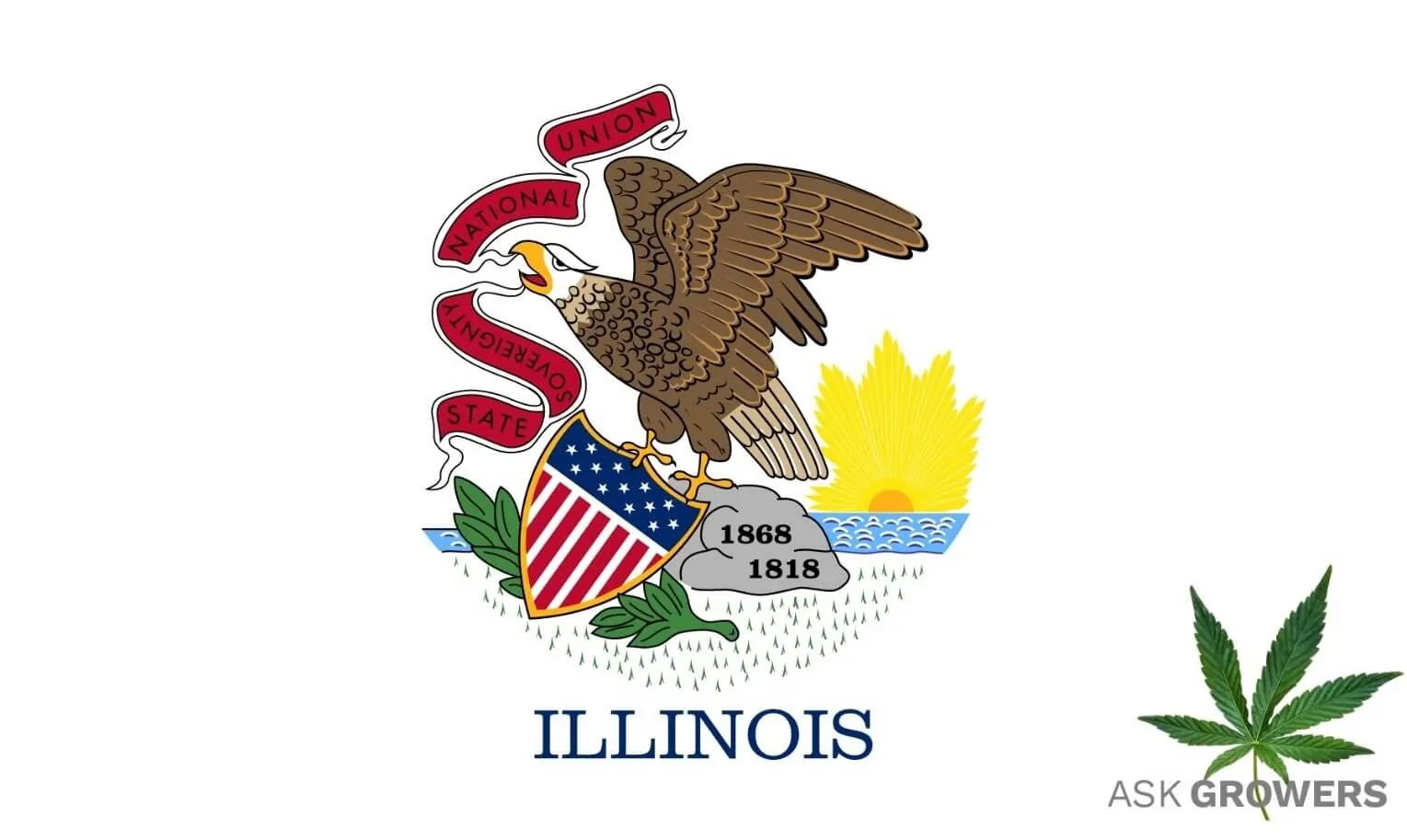
The Illinois marijuana market only begins to take its shape since legal recreational sales have been initiated here in early 2020. The date when the Illinois Cannabis Regulation and Tax Act was signed was a high spot in Illinois history. The first weeks of sales beat expectations, and most dispensaries even temporarily ran out of hemp products.
If you are heading for Illinois and want to have no law problems, read this guide that highlights the weed use and possession rules within the state.
Is Weed Legal in Illinois?
Illinois is the 20th state which legalized medical cannabis in 2014 and the 11th state which made recreational weed legal in 2019. On January 1, 2020, retail stores started their first sales when the law came into effect. The age to smoke weed and consume other products is 21.
Unlike other states which made marijuana legal by voter initiatives, the Land of Lincoln was the first state which legalized weed through its legislature. The first steps were made in 2016 when Illinois partially decriminalized its possession meaning that individuals who were caught with 10 g of pot or less would face a money penalty instead of incarceration.
That was a victory in 2019, and Illinois expects big profits planning to generate from $2 to $4 billion from the sales annually.
Buying Marijuana in Illinois?
Now, Illinois residents 21 and older are allowed to possess and buy:
- 1 oz./30 g of weed flowers;
- or hemp edible products that contain 500 mg of THC;
- or 0.18 oz./5 g of cannabis concentrated goods.
Medical marijuana (MMJ) patients can possess up to 2.5 ounces/71 g of hash at a time for a 2-week period. If they are diagnosed with a debilitating condition and need larger amounts of weed for treatment purposes, they can buy and possess more marijuana. The purchase is carried out at a dispensary indicated in their registry forms. You can change a provider only after completing an application form. Thanks to new laws, the MMJ program has undergone legislative changes and now allows even weed cultivation.
Most dispensaries that sell legal pot hold a dual license: they are authorized to sell Illinois weed for both medical and recreational use.
For the state residents, the purchase limits are the same as for possession, but Illinois visitors can get half these amounts:
- 0.5 oz./15 g of flowers;
- edible products that contain 250 mg of THC;
- or 0.09 oz./2.5 g of concentrated products.
Marijuana can be purchased in medical marijuana shops and retail stores. The operating hours differ from each city, but usually, the stores are open till 6-7 p.m.
Only registered MMJ patients can have Illinois cannabis legally delivered to them. This service is carried out by licensed medical dispensaries, no other delivery services are allowed.
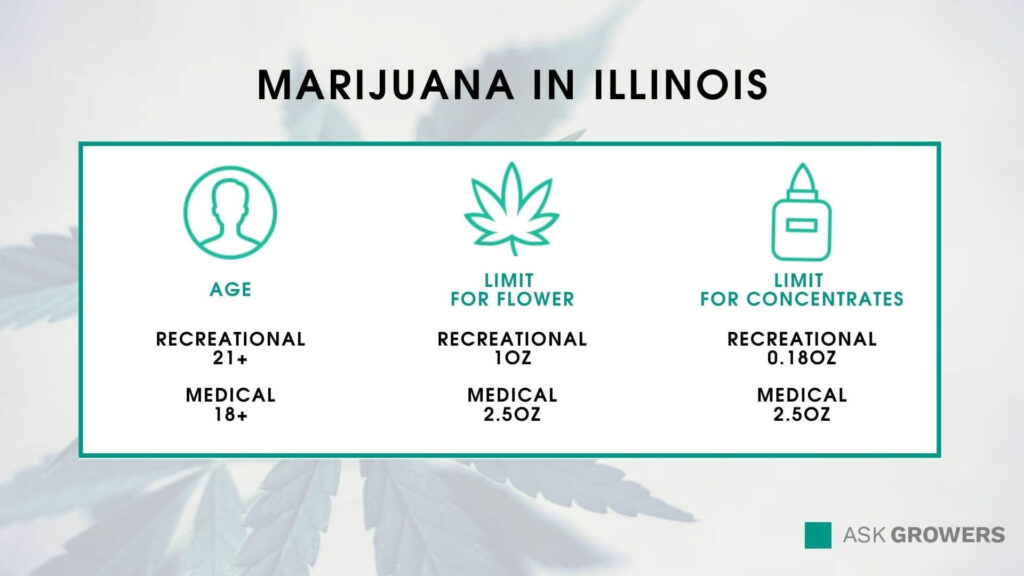
Read Also: Guide On How to Buy Recreational Marijuana
Cannabis Consumption in Illinois
Illinois marijuana vendors offer a wide range of pot-infused products for sale. Before visiting a store, make a brief menu investigation on the retailer’s website. You’ll be overwhelmed since there is an array of goods: concentrates, topicals, edibles, capsules, vapes, oils, sprays, tinctures, and even suppositories. The amount of pot you can carry is the same as purchase limits.
Even after marijuana legalization, its public consumption is outlawed because it may endanger the well-being of other people.
Here are the areas where the adult use of weed is prohibited:
- on a school campus, school grounds, and other educational institutions (kindergartens, colleges, high schools, universities, etc.);
- at local parks;
- in public places (bus stations, hospitals, transport, streets, malls, etc.);
- in motor vehicles, in the parking lot;
- on federal lands (monuments, national parks and forests, etc.);
- near an on-duty law enforcement officer, firefighter, school bus driver, correctional officer, etc.;
- in any place where smoking is banned.
There are areas where consumption and smoking of your own weed is allowed. The smoking age is 21 and older. You can smoke in:
- “smoker-friendly” hotels;
- weed consumption cafes, marijuana lounges, and other cannabis-centered businesses;
- some dispensaries with on-site hash consumption;
- within your private house or your friend’s house, within a rented house after the landlord’s approval (but smoking weed near minors under the age of 21 is against the law even at home);
- outside your private house (in the backyard).
Since marijuana has become legal in Illinois for less than a year, a lot of consumption facilities are still waiting to get the green light. Numerous places have not been authorized yet. Some decisions still rest with local jurisdictions.
Here is a couple of important hash facts:
- Illinois medical marijuana patients cannot give away medical weed.
- Adults are allowed to give away hemp to people 21 and older with no payment.
Taxes on Marijuana in Illinois
The state has formed a unique taxation policy for recreational cannabis, which changes depending on either the type of the sold product or its THC level. Goods with higher THC levels are subject to higher taxes:
- hemp and hemp-infused products with less than 35% THC are subject to a 10% tax;
- any weed-infused products that contain more than 35% THC are subject to a 20% tax;
- marijuana with more than 35% THC is subject to a 25% tax.
In addition, at the start of this hemp supply chain, hemp cultivation facilities and growers that sell cannabis should pay a 7% tax as wholesalers. Also, retail stores pay a 6.25% state tax plus local weed taxes (not more than 3% for cities and not more than 3.75% for counties). These taxes are built into the weed price for final buyers.
The taxation system for MMJ cardholders taxes medicinal marijuana at only 1% of the state sales tax. Compare these numbers with recreational hemp and the benefits of getting a medical card in Illinois will become obvious.
Read Also: All About Cannabis Stores
Illinois Medical Marijuana Card
To buy medical marijuana, qualified patients can register with the program launched by the Department of Public Health and get a registry ID card. These individuals are allowed to buy more than 2.5 oz. of legal marijuana if they get a signed certification and recommendation from a physician.
Another advantage of participating in the program is that patients don’t pay extra marijuana taxes. Also, employers, schools, and landlords cannot refuse MMJ patients in employment, enrollment, or apartment lease based on their medical status.
How to Get a Medical Marijuana Card in Illinois
If you want to obtain a medical card as an Illinois resident, follow these helpful instructions below.
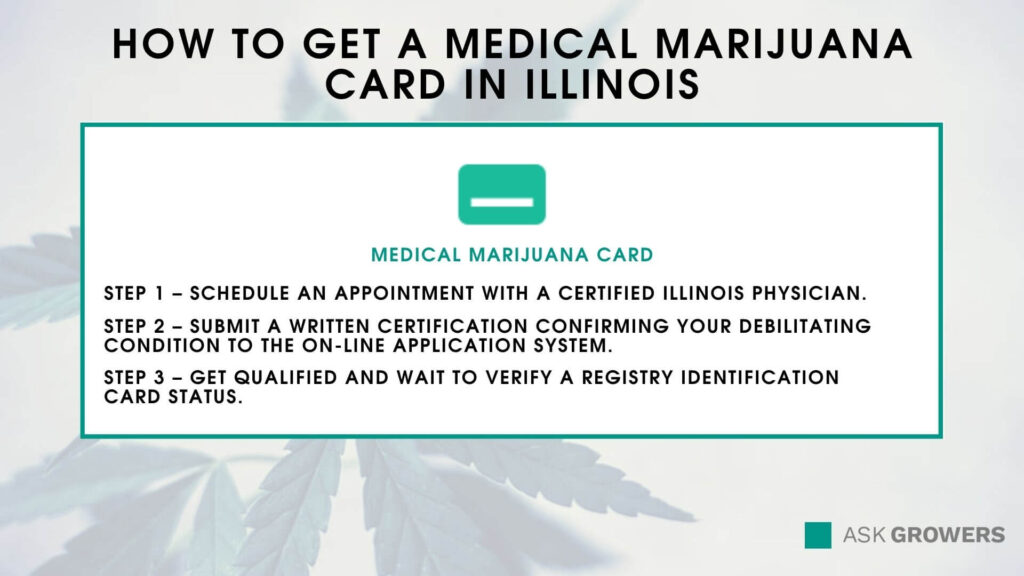
Diseases
Illinois qualified patients can get a medical card if they are diagnosed by a licensed doctor as having one of the below mentioned medical conditions:
- terminal illness (less than 6 months);
- Alzheimer’s disease;
- rheumatoid arthritis, osteoarthritis;
- wasting syndrome/cachexia;
- autism;
- hepatitis C;
- residual limb pain;
- Crohn’s disease;
- cancer;
- spinal cord injury;
- AIDS/HIV;
- traumatic brain injury;
- multiple sclerosis;
- irritable bowel syndrome;
- post-traumatic stress disorder (PTSD);
- Parkinson’s disease;
- glaucoma;
- migraines;
- muscular dystrophy;
- seizures.
Not all current qualifying conditions/diseases are described here. The full list is available on the governmental website, where patients can be registered with the MMJ program.
Out-of-state MMJ cards are not honored in the state and cannot be used for purchases in dispensaries.
Medical cannabis cards cannot be obtained by non-residents and people who are employed as school bus drivers, probation officers, correctional officers, firefighters, commercial drivers, or active duty law enforcement officers.
Patient qualifications
The applicants for MMJ cards should be 18 years old and reside in Illinois. During their participation in the program, they have to remain Illinois residents. These patients should get written medical consent from a physician licensed to have a medical practice in the state. Approved forms are given to patients as a part of their registry process. To provide certification, the doctor should complete a full assessment of the patient’s medical history.
The state laws allow minor patients to appoint a caregiver who will get medical weed for them from a dispensary.
Patient registry process
If individuals meet the listed qualifications, they can follow these steps to receive a cannabis card:
- visit a doctor and get certification that confirms your qualifying condition;
- complete an online application form. You will be required to indicate a dispensary that you are planning to visit (it can be changed afterward);
- designate a caregiver, if necessary, and submit his/her application);
- include your photo;
- prove your Illinois residency with 2 separate documents (ID card, driver’s license, utility bills, voter IDs, etc.);
- pay an application fee. You can choose a 1, 2, or 3-year card, which costs $100, $200, and $250 respectively. Patients with disabilities and veterans are eligible for reduced fee rates (50% reduction).
Veterans don’t need to submit the certification from a doctor but can provide their medical records from the Veterans Affairs office that document their treatment for the last 12 months.
Terminally ill individuals with 6 or fewer months to live are registered for free.
Patients under opioid replacement treatment can apply for an MMJ program online and get a temporary receipt to present to a dispensary while the application is in process.
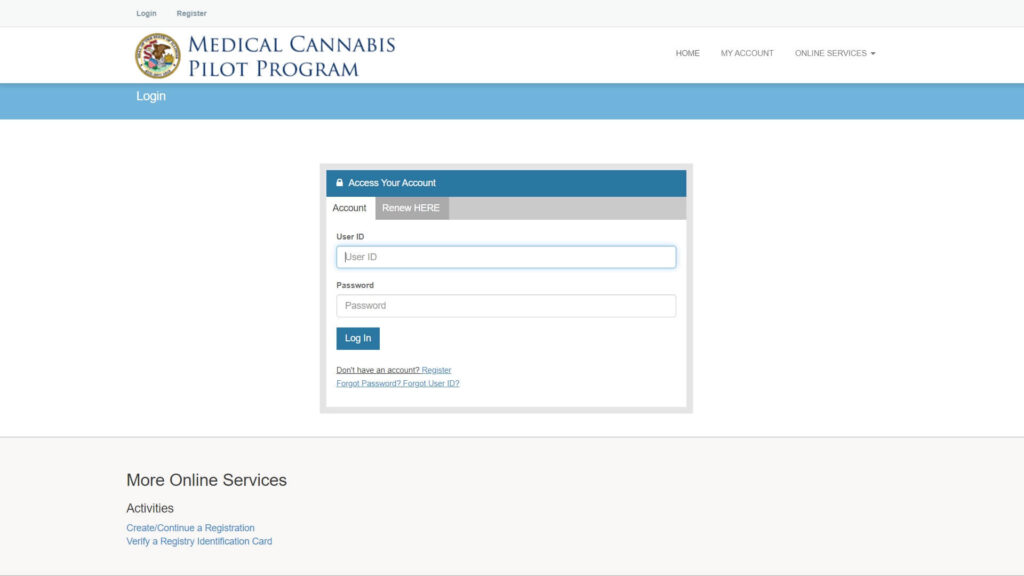
Caregiver qualifications
MMJ patients can indicate a caregiver who will assist them with the purchase and use of medical hemp, and the state will issue a background check. Only Illinois residents can become caregivers if they are 21 and older. They can serve 1 patient at a time. No compensation is provided for their services.
If one caregiver is chosen, he/she submits an application at no charge. If the 2nd and 3rd caregiver is added, the application fee is charged per each person ($75).
Caregivers can submit an application at the same time as the patient’s application submission or later. The registry process is similar to the one described above. Caregivers can also select a 1, 2, or 3-year card and pay a corresponding fee.
While buying hemp products at a dispensary, they should show their registry ID card.
Read Also: Cannabis Dispensaries: All Your Questions Answered
Transporting Marijuana in Illinois
According to marijuana laws passed after legalization, individuals can transport weed within the state, if it is kept in a sealed box inaccessible for the driver while the car is moving. Store it in the rear of the vehicle. Under no circumstances, don’t open this container.
Consuming medical and recreational marijuana inside a car is a crime. This rule is valid for both a driver and passengers. Also, don’t leave any hash in a car if it is rented.
Operating a vehicle under the influence of hemp is illegal and prohibited by weed laws. Individuals who are caught driving with a detectable level of hash or its metabolite in their blood face similar fines as alcohol-related DUI offenses. Under this condition, it is also illegal to operate a motorboat, an aircraft, or another vehicle. The legal THC limit in the blood is under 5 nanograms per milliliter.
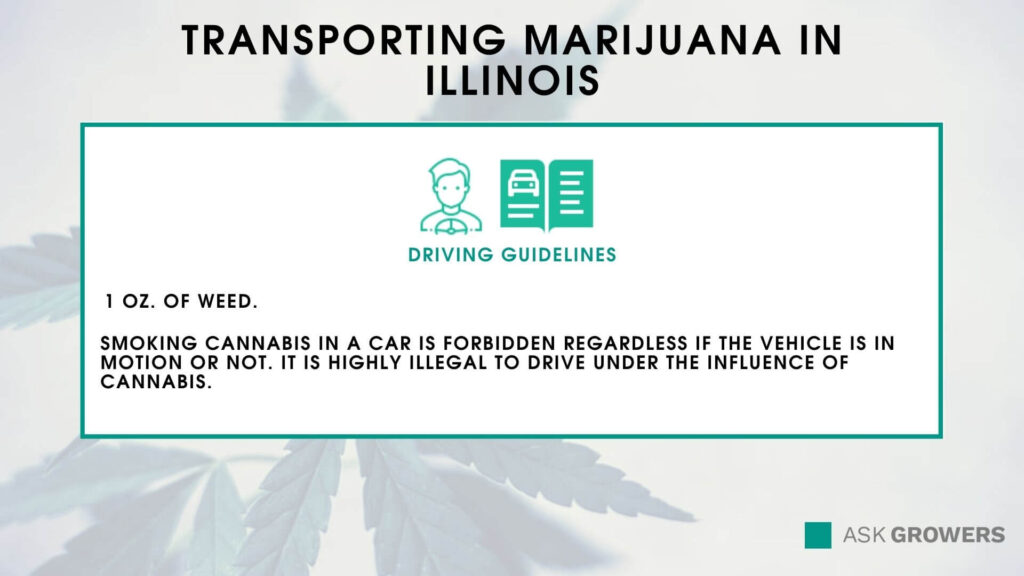
Exporting Marijuana
It is banned to leave Illinois with weed. People who are caught doing this will get severe punishment even on their first offense recording. Don’t export the product across the state lines either by plane, car, or another mode of transportation since it is a federal crime. Even if you are traveling out of Illinois to another state where cannabis is legal, don’t take it with you.
Growing Marijuana
In connection with new pot laws, adult licensed marijuana cardholders and their caregivers have the right to grow cannabis for their own use with a plant limit of 5 flowers that are 5’’ or taller. Regardless of the number of MMJ patients living in the house, only 5 plants can be cultivated per household. The seeds can be purchased from a dispensary.
The herbs should be cultivated in a secure place out of the public view. The statute says harvests cannot violate the patient’s possession limits. The growing laws allow medicinal gardens to be located in a private house or with the consent of the owner/landlord.
Home-growing by recreational users is a civil offense.
State-approved cultivators who get a license can also grow weed in Illinois.
Read Also: Features Of Growing Marijuana From Seed: Secrets And Recommendations
Licensing for Growers, Manufacturers, Processors, Retailers, Etc.
Because of recent cannabis decriminalization, most dispensaries and hemp craft growers are planning to obtain licenses from the Illinois Department of Agriculture. All dispensaries which have applied for licenses will be awarded by the close of 2021.
There are 5 types of licenses:
- craft growers;
- cultivation centers;
- processors;
- dispensing organizations;
- transporting organizations.
Existing medical dispensaries are permitted to sell cannabis to recreational users until their new licenses are under approval. Under new recreational laws, they are allowed to get same-site licenses to open a recreational-only dispensary at another location.
All licenses are subject to local policies, requirements, and local zoning rules. This means that some dispensaries will continue operating as medical pharmacies only because some cities have banned the sale of recreational hemp.
Illinois is currently making a market study of the marijuana industry, so a new round of licenses will be issued taking into account the findings.
Read More About Marijuana Laws In The Following States: Michigan, Colorado, Vermont, South Dakota, Alaska, Maine, Montana, New Jersey, Washington, Massachusetts, Maryland
Sources
http://www.dph.illinois.gov/topics-services/prevention-wellness/medical-cannabis/
https://norml.org/laws/illinois-penalties/
https://www.marijuanaandthelaw.com/state-laws/illinois/
https://wikipedia.org/wiki/Cannabis-in-Illinois
https://statelaws.findlaw.com/illinois-law/illinois-marijuana-laws.html
https://www2.illinois.gov/cannabis/Pages/default.aspx
https://healthcareweekly.com/illinois-recreational-marijuana-5/

 Guides
Guides

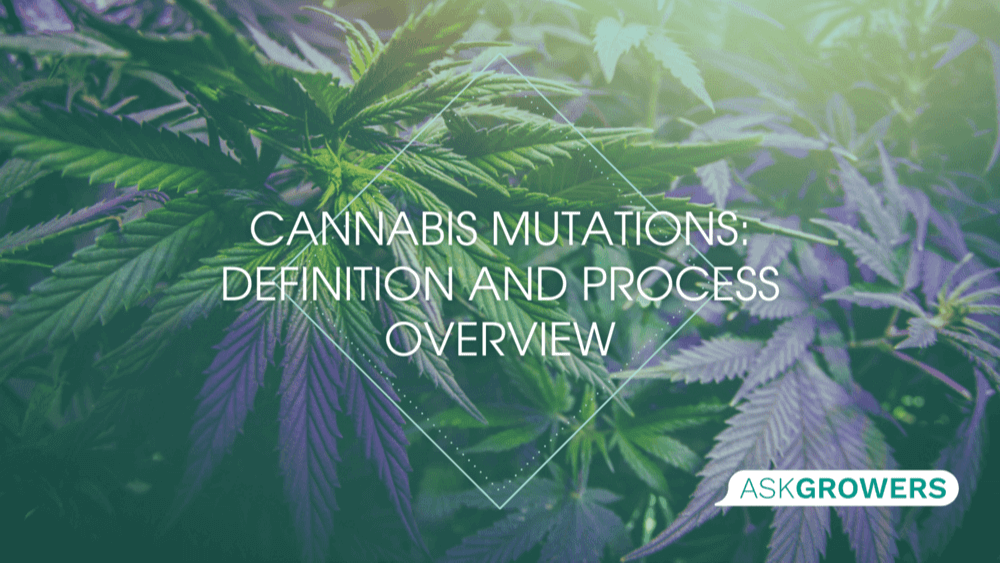
.png)
.png)



 (1).png)

.jpg)
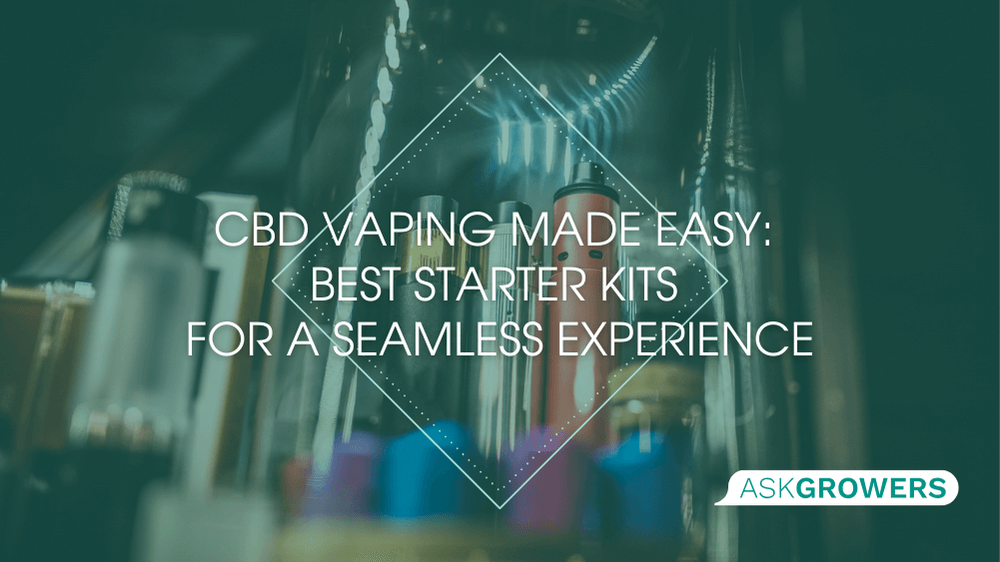
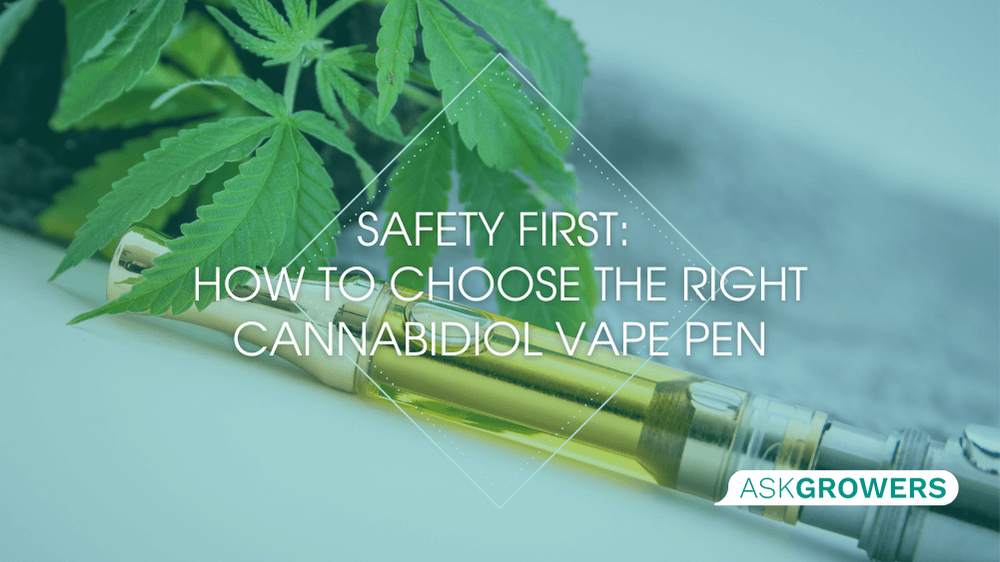


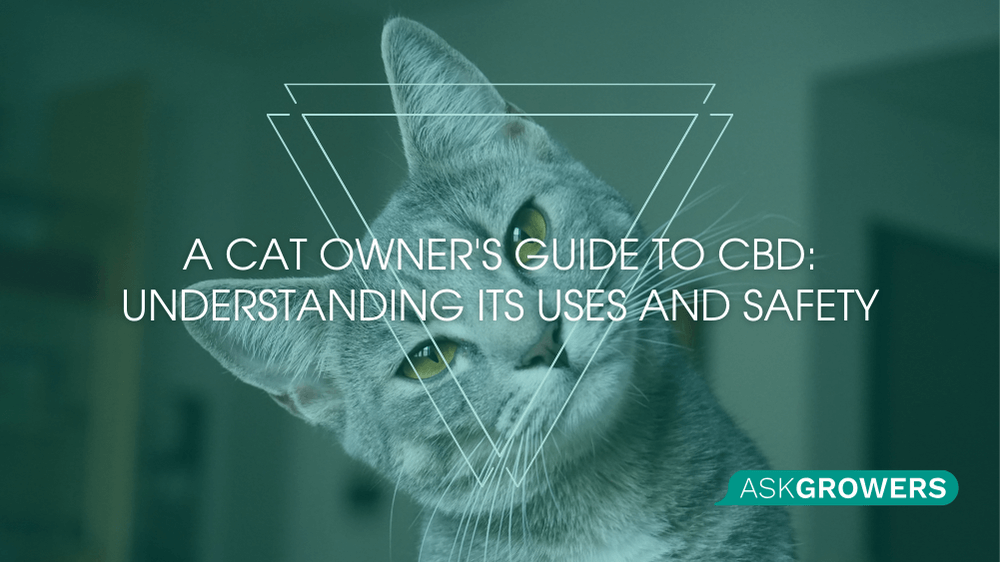
Be the first and share your opinion
Write a Review